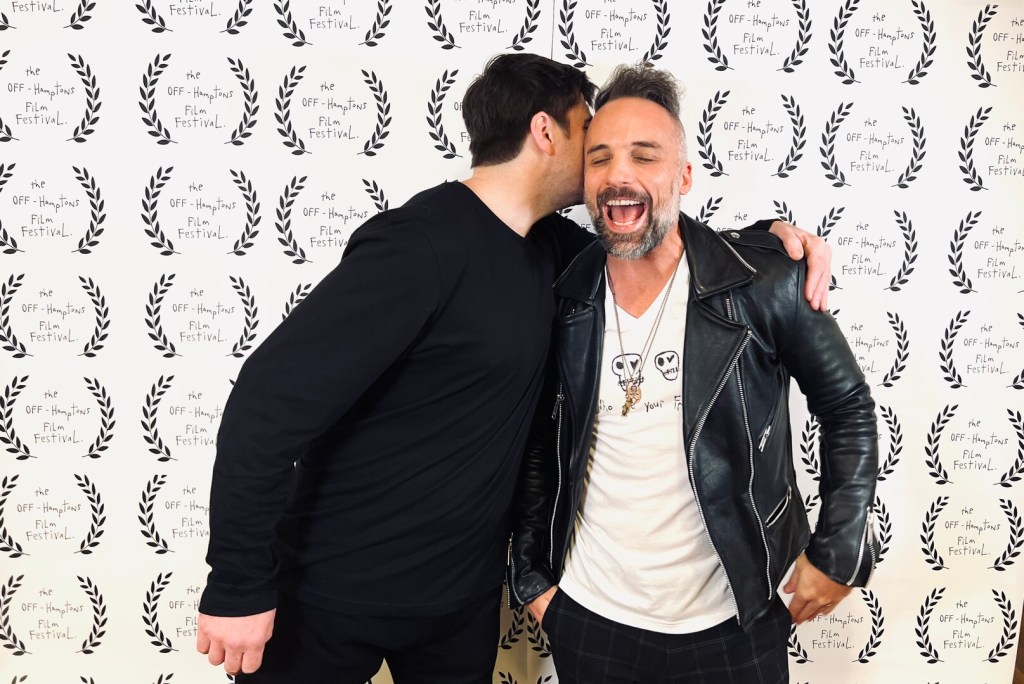Ask Beatty: Geraldo Rivera, Sometimes Sorry Just Isn't Good Enough

Let’s Stop Blaming the Victim
Geraldo Rivera’s recent column in Dan’s Papers: “Sometimes, Sorry Just Isn’t Good Enough,” Aug. 28, was a commentary about the Menendez brothers, who savagely murdered their parents on August 20th 1989 at their Beverly Hills mansion. At the time of the murder Lyle was 21 and his brother Erik was 18. The brothers cited severe emotional, physical and sexual abuse by their father throughout their childhood as the reason for the brutal killing and said that they killed their mother too for being complicit and not protecting them. They have served 35 years in prison and were recently denied parole.
Geraldo attempted to address a very important and complex issue – one which is confusing and counter-intuitive to many people. He stated: “If these young men were so victimized by their own father, why didn’t they tell someone?” Many people, if not most, might wonder the same thing. However, the latest research findings by our most trusted and respected experts and authorities in the field, tell us that most people who were sexually abused do not disclose their abuse while it is happening and some never tell anyone – ever. Geraldo’s statement, well-meaning as it might be, can be really damaging to survivors, who for their own reasons, chose not to tell while the abuse was still occurring. We have to be careful that our own personal and political views don’t get in the way of Bonafide evidence-based research findings. We need to STOP blaming the victim!
Sexual Abuse Statistics
The following sexual abuse statistics have been compiled by RAINN–the nation’s largest anti-sexual violence, non-profit agency, the National Center for Victims of Crime, the Bureau of Justice statistics and the National Sexual Violence Resource Center.
Sexual assault remains the most under-reported crime for teens as well as adults.
Every 74 seconds someone in the U.S. is sexually assaulted. Every 9 minutes that someone is a child.
1 in 4 girls and 1 in 6 boys is a victim of child sexual abuse before age 18.
1 in 5 children are solicited sexually on the internet.
Nearly 70% of all reported sexual assaults occur to children ages 17 and under
The median age for reported sexual abuse is 9 years o ld.
More than 20% of children are sexually abused before the age of 8
Nearly 50% of all victims of forcible sodomy, sexual assault with an object and forcible fondling are children under 12
30% of victims are abused by a family member.
As many as 50% of victims are abused by someone outside of the family whom they know and trust.
During a one-year period in the United States 16% of youth ages 14-17 have been sexually abused.
During the course of their lifetime 28% of U.S. youth ages 14-17 have been sexually victimized.
Over the years I have treated many adolescents and adults – both men and women – who were sexually abused. Less than 5% of the patients who contacted me specified that they needed therapy to deal with their early childhood sexual abuse experiences. The majority arrived at my office with presenting problems ranging from depression, anxiety, eating disorders, problems with sleep, relationship problems, sexual problems, substance abuse issues of various kinds and many with unexplained physical aches and pains. If I didn’t routinely take a very detailed history- beginning with one’s family of origin, and ask about whether there was a history of physical, emotional, verbal or sexual abuse, I would never have discovered what was at the root of my patient’s underlying symptoms and problems. The therapy would ultimately have been a waste of time, money and energy on the part of everyone.
False Allegations of Sexual Assault
False allegations of sexual abuse are relatively rare and occur in 2-8% of reports. (National Institute of Health and the Leadership Council Office of Justice Program). In the United States it is a crime to make a false allegation of sexual abuse. If a child makes a false allegation, they or their parents may face legal consequences- such as criminal charges or civil liability. You might wonder why someone would accuse another person of a violent act that never occurred. Some reasons include: revenge
Personal financial gain
Attention or sympathy
Mental illness or instability
Regret or misunderstanding over a consensual affair.
Why Don’t Most People Disclose Their Abuse While It’s Happening?
Research studies (including consistent statements from my own patients), report that people make the decision not to disclose the abuse for a variety of reasons including: shame
Guilt
Fear
Self- Blame
Threats from the perpetrator if they tell
Fear of not being believed
Being confused because the abuser is someone they know and trust
Being convinced that the abuse is normal
I have seen too many survivors of sexual abuse suffer serious psychiatric problems from both the abuse itself and from people, who for a variety of reasons, chose not to believe them when they were finally able and ready to disclose what had happened. Although the Menendez brothers did not tell anyone about their sexual abuse when it was happening, it was central to their defense in their first trial. If you recall, each brother’s case was heard by two separate juries in the first trial, which ended in two hung juries. In the second trial, the judge severely restricted the abuse testimony which weakened their defense and resulted in their being sentenced to two consecutive life prison terms without the possibility of parole. In 2025, a judge reduced their sentences to 50 years to life, making them eligible for parole, with a hearing set for the fall of 2025.
If you or someone you know has been sexually abused, try not to let your fears stop you from speaking out and taking the necessary steps to get some good professional help. It will make all the difference in your life!
Beatty Cohan M.S.W., L.C.S.W., A.A.S.E.C.T. is a nationally recognized psychotherapist, sex therapist, advice columnist, author of For Better for Worse Forever: Discover the Path to Lasting Love, national speaker, national radio and television expert guest and host of the weekly ASK BEATTY SHOW on the Progressive Radio Network. She has a private practice in New York City and East Hampton. Beatty would love to hear from you. You can send her your questions and comments to BeattyCohan.msw@gmail.com. For more information go to BeattyCohan.com.





